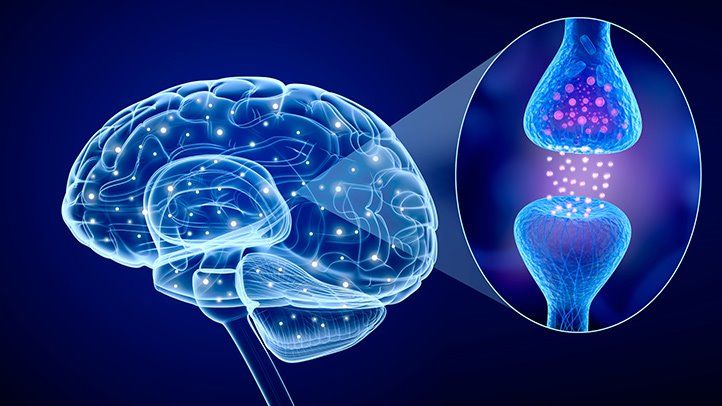Serotonin is a chemical messenger that is found in the brain and gut. It is a member of the class of neurotransmitters known as monoamines, including dopamine and norepinephrine. Serotonin regulates various bodily functions, including mood, sleep, appetite, and digestion. Imbalances in serotonin levels have been linked to several disorders, including depression, anxiety, and obsessive-compulsive disorder. This article will explore the discovery of serotonin, its functions in the body, and how imbalances in serotonin levels can lead to various disorders.
Serotonin is a complex chemical that plays a vital role in many of the body's functions, and its importance cannot be overstated. However, it is not just the presence of serotonin that is important, but also the balance of serotonin levels in the body. When the balance of serotonin levels is disrupted, it can lead to various disorders and illnesses.
One of the most common disorders associated with imbalances in serotonin levels is depression. Low levels of serotonin have been linked to depression, and many antidepressants, such as selective serotonin reuptake inhibitors (SSRIs), work by increasing the levels of serotonin in the brain. SSRIs work by blocking the serotonin reuptake in the brain, which increases the amount of serotonin available to bind to receptors. Anxiety is another disorder that is linked to imbalances in serotonin levels. Anxiety disorders such as generalized anxiety disorder (GAD), panic disorder, and social anxiety disorder have all been linked to imbalances in serotonin levels. Like with depression, SSRIs are often used to treat anxiety disorders, and they are effective in treating these disorders.
Discovery of Serotonin:
Serotonin was first discovered in the blood in 1948 by Maurice Rapport, Arda Green, and Irvine Page. They named the substance "serotonin" based on its chemical structure, which is derived from the words "serum" and "toning." In the following years, researchers discovered that serotonin is also present in the brain and gut. In the 1960s, scientists discovered that drugs that affect serotonin levels in the brain could significantly impact mood, leading to the development of antidepressants known as selective serotonin reuptake inhibitors (SSRIs).
Functions of Serotonin in the Body:
Serotonin plays a crucial role in regulating various bodily functions. Some of the key functions of serotonin include:

- Mood regulation: Serotonin is known as the "feel-good" neurotransmitter because it is responsible for regulating mood. Low serotonin levels have been linked to depression, while higher levels have been linked to feelings of well-being and happiness.
- Sleep regulation: Serotonin is also involved in regulating sleep. It helps to promote healthy sleep patterns and can help to alleviate insomnia.
- Appetite regulation: Serotonin regulates appetite, and low serotonin levels have been linked to overeating and weight gain.
- Digestion: Serotonin plays a role in regulating the contractions of the muscles in the gut, which aids in the digestion of food.
- Bone health: Serotonin also plays a role in bone health. Low serotonin levels have been linked to decreased bone density and an increased risk of osteoporosis.
Imbalances in Serotonin Levels and Their Effects:
Imbalances in serotonin levels can lead to several disorders. Some of the most common disorders associated with imbalances in serotonin levels include:
- Depression: Low levels of serotonin have been linked to depression. This is why drugs that increase serotonin levels, such as SSRIs, are commonly used to treat depression.
- Anxiety: Imbalances in serotonin levels have also been linked to anxiety disorders.
- Obsessive-compulsive disorder: Imbalances in serotonin levels have been linked to obsessive-compulsive disorder (OCD).
- Migraines: Serotonin regulates the contraction of blood vessels in the brain, and imbalances in serotonin levels have been linked to migraines.
- Irritable bowel syndrome: Imbalances in serotonin levels have been linked to irritable bowel syndrome (IBS).
- Fibromyalgia: Fibromyalgia is a chronic pain condition that is thought to be related to imbalances in serotonin levels.

Conclusion:
Serotonin is a crucial chemical neurotransmitter that plays a vital role in regulating various bodily functions. It regulates mood, sleep, appetite, and digestion, among other things. Imbalances in serotonin levels can lead to several disorders, including depression, anxiety, OCD, migraines, IBS, and fibromyalgia. Understanding the role of serotonin in the body can help us to understand these disorders better and develop more effective treatments. Further research is needed to fully understand the complex role of serotonin in the body and how imbalances in serotonin levels can lead to various disorders. However, current medications like SSRIs and other related drugs have been developed to help people with these disorders.







